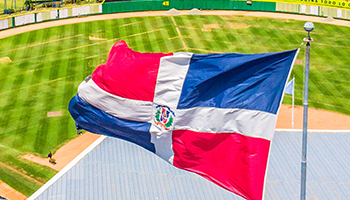UNESCO launches consultation on the impact of the Internet and its regulation
 |
UNESCO launches consultation on the impact of the Internet and its regulation With the participation of representatives from public and private institutions, the Dominican Commission to the United Nations Educational, Scientific and Cultural Organization (UNESCO), based in the Dominican Republic, implemented the first National Consultation on the impact of the Internet and its regulation in the country. The activity was led by the Coordinator of the Vice Ministry of Cultural Heritage of the Ministry of Culture (MINC), Nerva Fondeur, representing the Minister, José Antonio Rodríguez, and the Secretary General of the Dominican Commission to UNESCO, Mercedes Brito-Feliz. In addition, the following officials also participated in the working groups: Amparo Arango, Advisor on Information Technology and Communication (ICTs) of the Dominican Institute of Telecommunications (lNDOTEL); and, Isabel Viera Bermúdez, Regional Culture Officer for Latin America and the Caribbean to UNESCO. Likewise, the following persons also participated in the event: Wascar Frías, Director of Technology General at the National Archive; Olivo de León, President of the Dominican Association of Journalists; Elina María Cruz, Communications Manager at FUNGLODE; and, representing the MINC, José Tejada Gómez, Press Director, and Teófilo Terrero, Public Relations. Addressing those present, Fondeur explained that the concept of the universality of the Internet, which is based on human rights standards with regard to the free Internet, its openness and accessibility for all, and multiplicity in the shared management by the stakeholders, will be analyzed during this consultation. In regard to the key principles in the knowledge society, the themes of quality education for all, universal access to information and knowledge, and respect for cultural and linguistic diversity, were also addressed.
The issues of access to information and knowledge, free speech, privacy, and ethical dimensions of the information society, were also discussed at the meeting. These considerations are supported in the document issued by UNESCO, which states that access to information and knowledge is a basic requirement to building inclusive societies, which correlates with Article 19 of the Universal Declaration of Human Rights that deals with the right to freedom of expression and “includes seeking and receiving information and opinions, and imparting them regardless of frontiers, by any media.” In so far as accessibility, it also requires the development of skills in the field of media and information literacy, and improving the quality and diversity of the linguistic content. Whereas the ethical dimension seeks to promote a commitment to a reflective and informed Internet that promotes peace and the fulfillment of each person’s potential. |

Related News
-
(Versión en español) Uffest 2025 premia al talento universitario con más de 15 galardones en su quinta edición
-
(Versión en español) AGN organiza conferencia sobre la Anexión a España y las visiones encontradas de los historiadores
-
(Versión en español) Destaca lo extraordinario en tu compañía y llévala al siguiente nivel en MECA 2025
-
(Versión en español) Anuncian ganadores de Premios FUNGLODE 2025
-

Dominicanos en Grandes Ligas
Las ultimas noticias/novedades de lo que acontece con los Dominicanos en las Grandes Ligas durante toda la temporada 2019.


